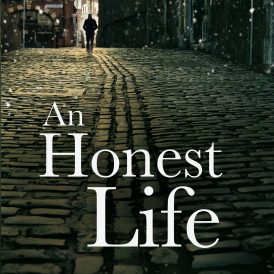As a literary expert I get asked all the time for advice from writers. When I ask ‘what kind of advice are you looking for? What aspects of writing, publishing and the book industry do you want advice on?’ I usually receive a confused/frightened look and the response ‘Well, everything really’! I understand why! It’s a complex industry with a lot of unwritten rules that newly emerging writers find hard to navigate.
As a result I’ve found myself delivering the same advice over and over again to writers all over the world which I’d like to share with you now:
1. My first piece of advice to you,as a writer, is to get a copy of the Writers’ and Artists’ Yearbook or the Writer’s Handbook, invaluable tools for any writer wishing to succeed in the publishing industry. These two books are the bibles of this industry for many and absolute gems. You won’t need both, buy one and keep it to hand, it will answer so many questions that you have and give you so much more knowledge.
2. The biggest piece of advice I can give any writer seeking publication of their work is this: DO YOUR RESEARCH! I advise writers to do a ton of research before approaching an agent or publisher. You get one chance, and one chance only usually with each publisher and agent so it’s best to make sure your work is not only in the absolute best shape it can be, as good as it can be, but that you’ve also researched the market you are writing in and know that your work is a commercially viable and attractive prospect to a publisher. This is something a lot of writers neglect. Think of your writing as a product you are selling and ask yourself; is my product as fully developed as it can be? Has it got potential for great sales? Will it appeal to the trade and the customers? What kind of potential audience is there for it? Am I thinking about this from a commercial perspective? Publishing is a business so if you want to success in this business you need to know as much about it as possible and be business-savvy. The internet is always a super source of information too. There are hundreds of great sites that will help you, just search using appropriate general key words and you will come across them.
3. Submitting to agents is an arduous task. When you’re sure your work is ready (and by that I mean the best book that it can possibly be, having been edited, reworked and revised to within an inch of it’s life) then, and only then, should you make queries about submitting it. There are listings of all agents in both books I mentioned above. I would advise you to get some advice online about the best way to approach an agent. Check their websites before approaching them to ensure you are approaching them with the right type of work and are submitting the work in full accordance with their guidelines for submission.
4. When it comes to submitting chapters for evaluation most agents aren’t going to spend time and effort evaluating your work as they are too busy. They my read it and say ‘yes, I’ll read more’ but they won’t have time to give you a report, appraisal, feedback or advice on it so don’t ask. Remember always to think about things from an agent’s point of view. Their job is not to read, review and select new clients, that is a small part of what they do to bring in new business. The larger part of what they do is to represent and manage their existing clients. Don’t try to take too much of their time and don’t ask for more than they can give. If you’re looking for an assessment/evaluation/feedback on your book go to a literary consultancy (Can I suggest The Literary Professionals?!!) as this is their job. They will read and review your manuscript and and provide a full critical analysis and evaluation of it and its publishing potential. They will outline the key areas that need work and what direction you need to go in to improve your book but this is not the role of an agent. An agent’s job is to work for you ONCE they have signed a contract for representation with you. Not to work for you for free if they aren’t going to pursue a business contract with you. Bear this in mind and the agents you approach will appreciate your consideration.
5. There are no hard and fast rules on how much work to have completed before submitting to an agent but my personal opinion is that as the market is so incredibly competitive you are better off having a full, well-developed ms (manuscript) that you are sure is the best it can be before submitting. If you submit something that is ‘not quite there’, unfinished, not-fully developed, not worked on enough or generally not at its best due to a lack of proper attention and it is rejected then you will be unlikely to get another opportunity to submit. Present your work in its best light first time as chances are hard to come by and every professional working in this industry is extremely busy and overwhelmed with submissions. They won’t have time to try to seek out the gem of greatness in your work or uncover its latent potential. Make your work SHINE with greatness before you send it so it’s not hard to find a reason to love it.
I hope this helps you and wish you luck with your writing journey!
#TLP
Other articles you might like…
Setting up a bookclub? Read our guide to how to start one.
Writing a novel? Check out our library of writing resources.
Honing your craft? Check out our favourite writing books.
Practicing your skills? Try out our general writing exercises.
Submitting your novel? Check out our Dos and Don’ts.
Don’t just take our advice. Check out Orwell’s Rules for Writers.
Just starting out? Read our advice for new writers.
Join our mailing list:


